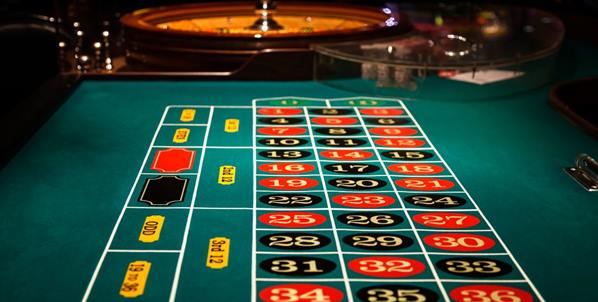
There is hardly a physical or online casino today without roulette, but this fun game’s history dates back to the 17th century. Gambling history has it that the creation of this game can be credited to Blaise Pascal, a brilliant mathematician and physicist at the time.
Technology such as augmented reality is now set to revolutionize the customer experience and make the game even more user immersive.
He stumbled upon the concept of the roulette wheel while engrossed in his quest to invent a motion machine. Let’s uncover the story behind Pascal’s creation and how new technology has transformed it into the pastime we enjoy today.
The Pursuit of Eternal Motion
Blaise Pascal was fixated on developing a machine that could operate endlessly without any external influence. In the 1650s, he decided it was time to construct a wheel that he believed would bring his idea to life, challenging the laws of physics along the way. Despite his efforts, his creation failed to achieve its intended purpose of spinning unendingly.
Pascal’s Wheel Birthed the Roulette Wheel
Pascal’s wheel design featured numbered pockets arranged along its edge. Through his experimentation with this wheel, he observed how a small ball would travel around before coming to rest in one of these numbered pockets after being spun. This is exactly how the roulette wheel works today.
Pascal’s perpetual motion machine never came to life, but it accidentally paved the way for the roulette game we love today. Since then, the game’s overall look and rules have changed a number of times. In the 18th century, the game became popular all over Europe after the French upper class took to it. Soon, there were two main versions. The first is the European version, which has one zero, and the second is the American version, which has a double zero.
The Rise of Online Roulette
Roulette can now be played online like many other casino games, but nothing has changed about how it is played or the most popular variants. Still, you’ll find new options like speed roulette that give you a different feel from the classic version if you’re up for trying new things.
You’ll no longer be restricted to playing at one location, as you can access the game on your phone or computer whenever you wish to. Online casinos also know that some people might miss playing at land-based casinos, so they introduced live dealer roulette online.
Here’s a look at some online roulette variants you can expect to find at online gaming platforms:
European Roulette
This version includes a single zero. It has better odds compared to the American version of the game.
American Roulette
Featuring both a single and a double zero, American roulette comes with a higher house advantage.
French Roulette
French roulette is similar to the European roulette. It also has one zero pocket but provides two additional rules – “La Partage” and “En Prison”. These options can help decrease the house edge further.
Multi-Wheel Roulette
This variation enables players to place bets on multiple wheels simultaneously, boosting excitement and opportunities for winning.
The Future of Online Roulette
Online roulette will continue to grow and adapt with every change or advancement in technology. Virtual reality and augmented reality technologies could make roulette more fun and draw players closer to the real casino customer experience in the future.
Now that some casinos are integrating cryptocurrencies and blockchain technology, how people experience roulette is also slowly changing as transactions become safer, more open, and faster.
Overall Thoughts
From Blaise Pascal’s creation to the current virtual form, roulette has undergone an incredible evolution. What started as an exploration of motion has evolved into a timeless favourite in casinos, enjoyed by millions of customers. As online roulette continues its development, it is evident that Pascal’s influence will persist, leaving a lasting mark on the history of gambling.




